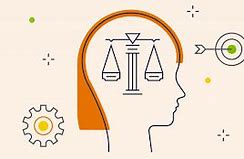Imagine a world where artificial intelligence seamlessly integrates with our everyday lives, presenting incredible advancements in fields like medicine, communication, and transportation. While this vision may seem like science fiction, it is becoming a stark reality. As technological progress accelerates, it raises profound ethical questions, particularly when examined through the lens of monotheistic beliefs and politics.
The Intersection of Monotheistic Beliefs and Politics
Monotheistic religions, such as Christianity, Judaism, and Islam, have long played a prominent role in shaping political systems across the globe. Both ancient and modern, these religious frameworks have influenced the way societies are governed and how individuals interact with one another. Ethical considerations intrinsic to these belief systems create a moral compass that guides their followers in navigating the complexities of life.
On the other hand, politics encompasses the structures and processes through which power is distributed and decisions are made. The intricate interplay between monotheistic beliefs and politics has historically given rise to vibrant debates and, in some cases, conflicts. Examining the ethics of technology within this context offers a fresh perspective on the potential benefits and risks associated with advancements in this domain.
 The Dilemma of Technological Progress
The Dilemma of Technological Progress
Technology, in its essence, is neutral. It is neither inherently good nor evil, but rather a tool shaped by human intentions and actions. As it becomes increasingly intertwined with our daily lives, however, a closer examination of its moral implications is vital.
In contemplating the ethical implications of technology and monotheistic beliefs provide a valuable framework. These beliefs emphasize the dignity and worth of human life, calling for a responsible stewardship of the Earth’s resources. As technology progresses, questions arise regarding its impact on human relationships, the environment, and societal well-being.
Implications for Human Relationships
Advancements in technology have undoubtedly altered the way we connect and communicate. Social media platforms, for example, enable instantaneous communication across vast distances. While this fosters a sense of global community, it also raises concerns about privacy, online harassment, and the erosion of meaningful face-to-face interactions.
Monotheistic beliefs, with their emphasis on compassion, empathy, and justice, offer guidance on how to navigate these challenges. They remind us of the importance of treating others with dignity, respecting their privacy, and cultivating genuine connections, even in the digital realm.
Environmental Considerations
As we strive for progress, it is crucial to analyze the environmental impact of our technological advancements. From e-waste to the exponential increase in energy consumption, technology has the potential to exacerbate the ecological crises we face. This is where monotheistic beliefs, with their call for stewardship of the Earth, come into play.
Monotheistic faiths underscore the interconnectedness of all living beings and advocate for responsible resource management. When exploring the ethics of technology, we must consider the environmental consequences and strive for sustainable solutions that align with these beliefs, ensuring the well-being of both present and future generations.
Safeguarding Societal Well-being
As technology becomes increasingly sophisticated, it holds the promise of transforming healthcare, education, and governance. From personalized medicine to participatory democracy, these advancements offer immense possibilities for societal well-being. However, they also raise concerns about issues such as data privacy, algorithmic bias, and the concentration of power.
To address these dilemmas successfully, we must draw upon the principles embedded within monotheistic beliefs. By advocating for fairness, justice, and equality, these belief systems provide an ethical compass to navigate the evolving landscape of technological progress. Through open dialogue and collaboration, we can strive to ensure that technological advancements align with these moral imperatives, empowering all individuals and protecting the diversity and dignity of human life.
Empowering Ethical Reflection
In confronting the ethical dimensions of technology, the intersection of monotheistic beliefs and politics offers an invigorating lens. By exploring the implications for human relationships, the environment, and societal well-being, we uncover both challenges and opportunities. Although this exploration does not provide easy answers, it prompts us to engage in crucial conversations and make collective decisions regarding our technological future.
As we venture into a world populated by ever-advancing technologies, let us not forget the moral complexity that underlies their development and implementation. By embracing the richness of monotheistic beliefs and a nuanced understanding of politics, we open doors for thought-provoking discussions and reflections, forging a path toward an ethically conscious technological landscape.
